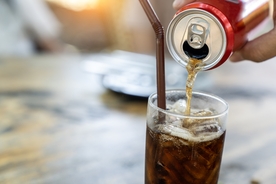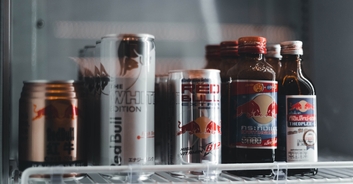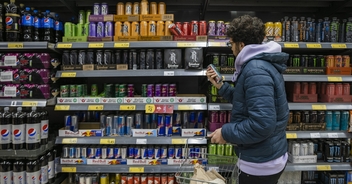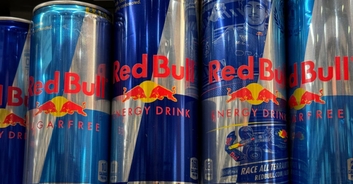Frequent consumption of sugary drinks may lead to an increased risk of premature death, a new study has claimed.
Research published in the journal Circulation found that people who consumed two or more servings per day of sugar-sweetened beverages (equivalent to a standard glass, bottle or can) had a 31 per cent higher risk of early death from heart disease.
The study, led by Harvard T.H. Chan School of Public Health, claimed that each additional serving of sugar-sweetend beverages (SSB) was also associated with a 10 percent greater risk of the disease. In addition, sugary drinks were linked to death from cancer, with regular drinkers at an increased risk of 18 percent.

To determine whether SSB and artificially sweetened beverages (ASB) were associated with a risk of mortality, researchers examined 37,716 men from the Health Professional's Follow-up study from 1986 to 2014, and 80,647 women from the Nurse's Health study from 1980 to 2014, all of whom were free from chronic disease at the outset of the study.
Participants filled out surveys about their diet every four years, and answered questions about their lifestyle and overall health every two years. They discovered that, compared with drinking SSBs less than once per month, drinking one to four sugary drinks per month was linked with a one percent increased risk of mortality.
Furthermore, consuming two to six per week was found to be associated with a six percent increase; one to two per day with a 14 percent increase; and two or more per day with a 21 percent increase.
Researchers found that replacing SBS with ASBs was linked with a moderately lower risk of early death, and also revealed high intake levels (at least four servings per day) of ASBs slightly increased risk of both overall and cardiovascular-related mortality among women.

As a result, they cautioned against excessive ASB consumption, with Mr Vasanti Malik, a research scientist at the Harvard T.H. Chan School of Public Health's Department of Nutrition, advising people to drink other beverages.
"Our results provide further support to limit intake of SSBs and to replace them with other beverages, preferably water, to improve overall health and longevity," he said.
Malik also emphasised that sugary drinks have previously been proven to have other dire consequences in other studies, stating:
"There's been previous studies that have shown strong and consistent links between the consumption of sweetened beverages and weight gain, Type 2 diabetes, as well as other cardiometabolic conditions such as heart disease and stroke."
Walter Willett, professor of epidemiology and nutrition, also commented on the study, saying: "These findings are consistent with the known adverse effects of high sugar intake on metabolic risk factors and the strong evidence that drinking sugar-sweetened beverages increases the risk of type 2 diabetes, itself a major risk factor for premature death.
"The results also provide further support for policies to limit marketing of sugary beverages to children and adolescents and for implementing soda taxes because the current price of sugary beverages does not include the high costs of treating the consequences."
It must be noted that the study only found a link, not a cause and effect, between the consumption of sugary drinks and premature death.




